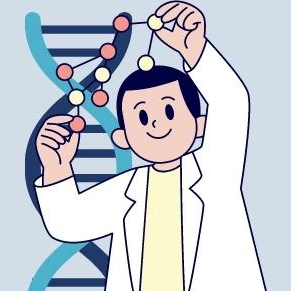Discover and explore top open-source AI tools and projects—updated daily.
equidock_public by  octavian-ganea
octavian-ganea
Fast 3D protein docking via SE(3)-Equivariant geometric deep learning
Top 98.8% on SourcePulse
EquiDock addresses the computationally intensive problem of rigid 3D protein-protein docking using geometric deep learning. It employs independent SE(3)-equivariant models to achieve fast and accurate predictions, targeting researchers and engineers in computational biology and drug discovery. The primary benefit is accelerating the docking process, crucial for understanding molecular interactions.
How It Works
The core of EquiDock lies in its use of SE(3)-equivariant neural networks, which respect the rotational and translational symmetries of 3D space. This geometric deep learning approach processes protein structures, represented as graphs of residues, to predict binding poses. The system is designed for end-to-end rigid docking, handling data preprocessing, model training, and inference.
Quick Start & Requirements
- Installation: Primarily involves cloning the repository and setting up Python dependencies.
- Prerequisites: Python 3.9.10, CUDA 10.1, PyTorch 1.10.2, DGL 0.7.0, RDKit 2021.09.4.
- Operating System: Linux/macOS only; Windows requires modifications.
- Data: Requires downloading and preprocessing the DB5.5 and DIPS datasets using provided scripts (
preprocess_raw_data.py). - Training:
CUDA_VISIBLE_DEVICES=0 python -m src.train -hyper_search - Inference:
python -m src.inference_rigid - Links: DB5.5 dataset: https://zlab.umassmed.edu/benchmark/; DIPS dataset: https://github.com/drorlab/DIPS, https://github.com/amorehead/DIPS-Plus. DIPS data download: https://www.dropbox.com/s/sqknqofy58nlosh/DIPS.zip?dl=0.
Highlighted Details
- Utilizes novel SE(3)-equivariant models for protein docking.
- Offers an end-to-end solution for rigid docking tasks.
- Provides pretrained models and scripts to reproduce paper results.
Maintenance & Community
The project is associated with academic research (ICLR 2022) but lacks explicit details on ongoing maintenance, community channels (e.g., Discord/Slack), or a public roadmap.
Licensing & Compatibility
The provided README does not specify a software license. This absence creates ambiguity regarding usage rights, commercial compatibility, and derivative works.
Limitations & Caveats
The codebase is explicitly stated to work only on Linux and macOS, requiring modifications for Windows compatibility. Potential steric clashes are noted as an issue, addressed via a postprocessing step, indicating that raw model outputs may not always be physically realistic without this intervention. A specific CUDA version (10.1) is required, which might pose compatibility challenges with newer hardware or software stacks.
2 years ago
Inactive

 OpenGVLab
OpenGVLab a-r-j
a-r-j AspirinCode
AspirinCode liugangcode
liugangcode MinkaiXu
MinkaiXu LirongWu
LirongWu churchlab
churchlab NVIDIA
NVIDIA PaddlePaddle
PaddlePaddle hussius
hussius hyperai
hyperai facebookresearch
facebookresearch